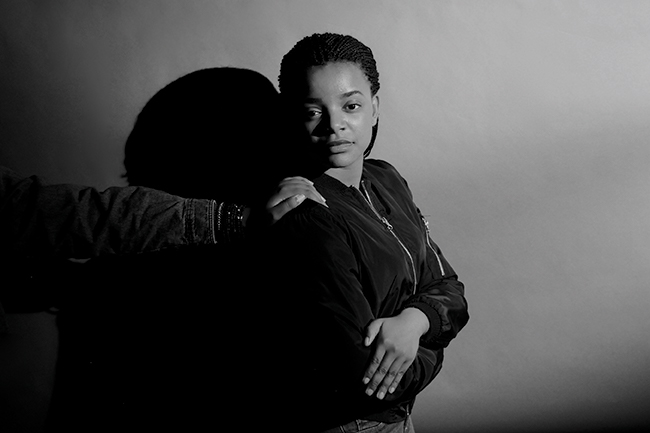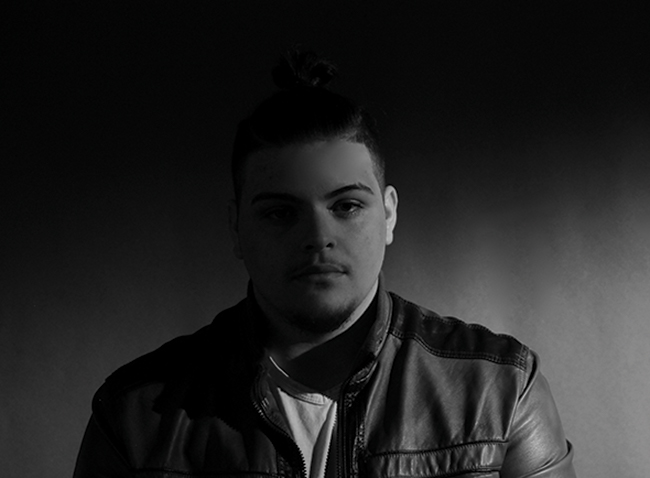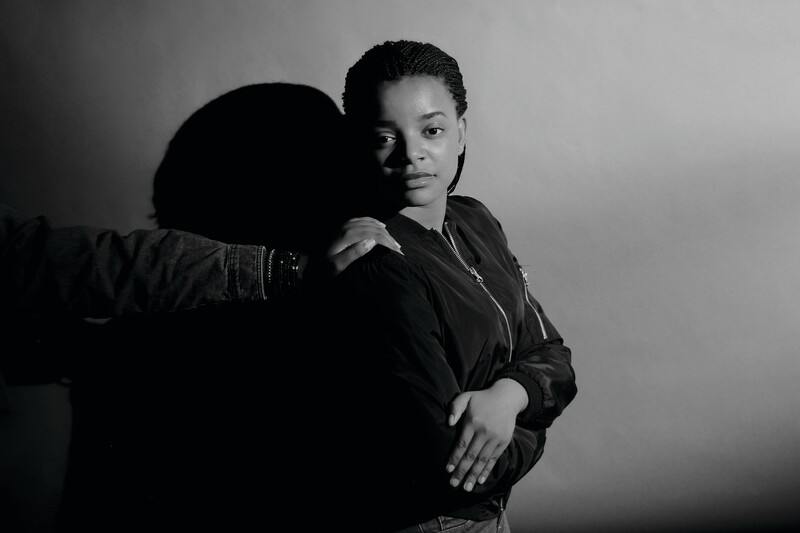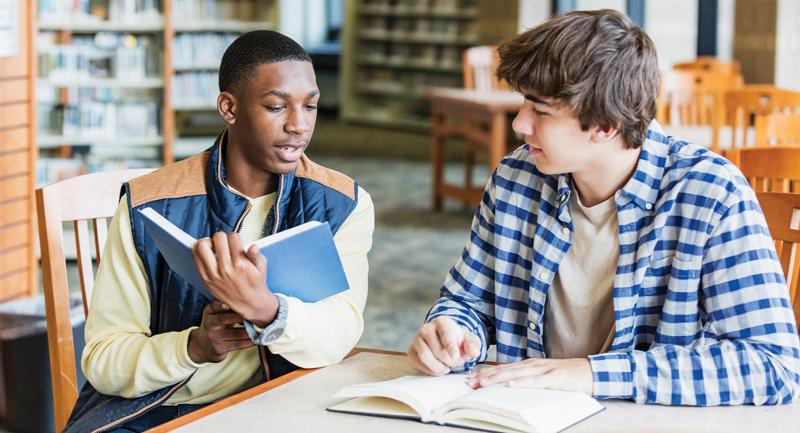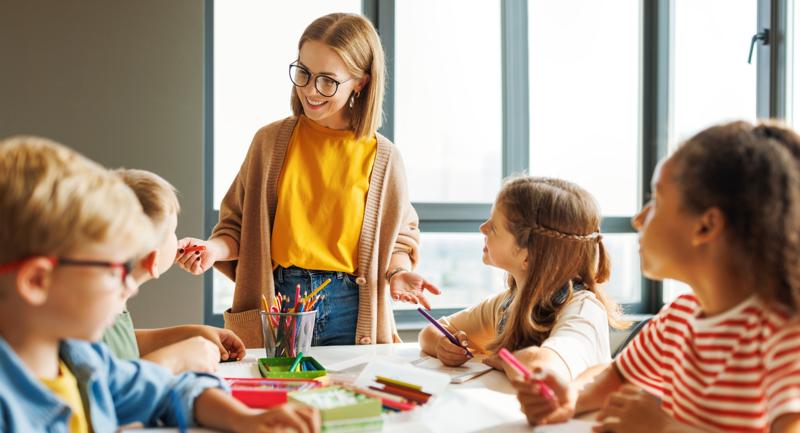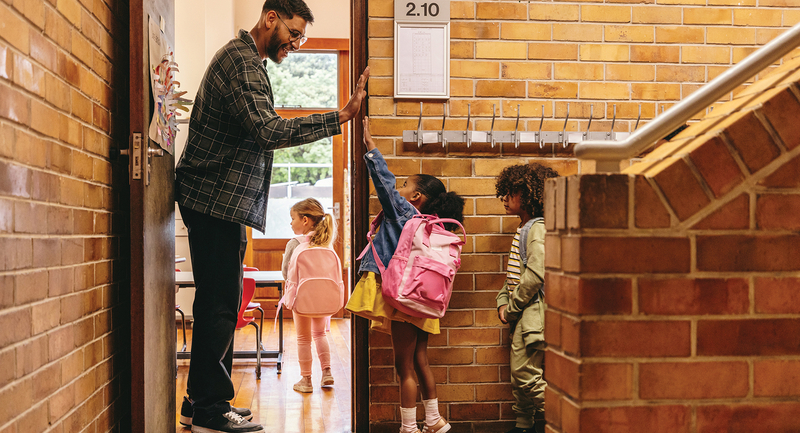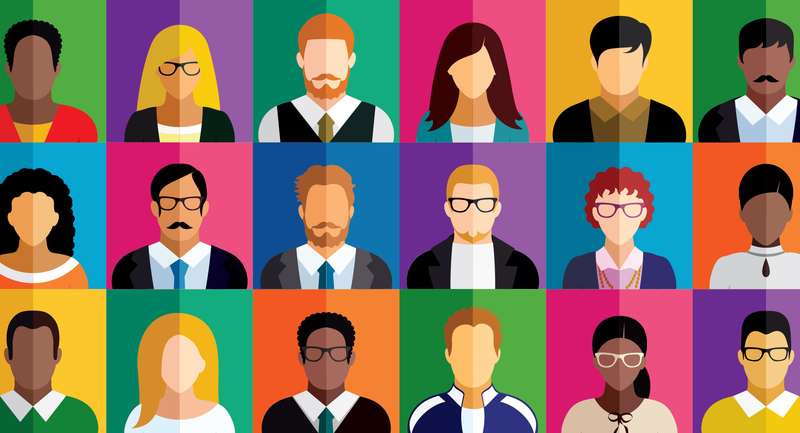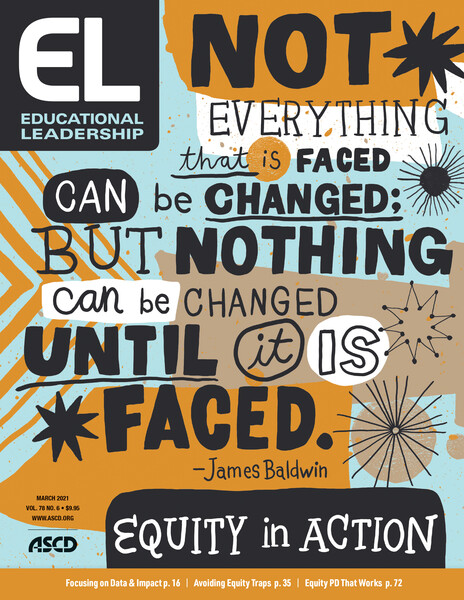What does it mean to be American? For almost three years now, I have grappled with this question along with some of my former students at Lowell High School in Massachusetts. Definitions of being American are contentious. Who is recognized as an American? Who is respected or valued? The idea of who is understood to be an American today looks very different than it did 100 years ago, or 100 years before that.
Lowell High is home to students from across the socioeconomic spectrum and from more than 60 countries across five continents. In 2016, I cocreated a seminar on American diversity with one of my students, which I later taught as a course. We hoped this course would lead students through the history of the United States' fight for equity and justice by diving into landmark federal laws and Supreme Court cases, grappling with the evolution of social movements, and learning from the lives of a series of changemakers. The seminar sought to spotlight movements and people that have historically been erased from most textbooks.
The Personal Is Powerful
Two years into teaching this seminar, I realized that to truly begin to convey the complexity of this nation's history, it was important to make it more personal for my students. High school history classes often center on analyzing the actions of nations, large-scale transformations of communities, and broad trends in society. Such history is essential, of course. But history is also personal: the collection of millions of individual stories, dreams, beliefs, and experiences. To truly appreciate America's diversity, it's important to acknowledge and learn from these individual strands.
So, in 2018, my students and I set out to understand "big history" through the lens of each student's own personal history. Together, my students made connections, identifying how the impact of the laws and movements we studied were woven through their personal histories on an intimate scale. There were stories of migration, of struggling to learn a new language, of discrimination, of families creating new lives. I watched as my students began to claim movements and marches, laws and policies of decades or centuries ago as part of their own histories. And I saw how listening to each other's stories drew them closer as a class.
That year, my students and I self-published two books—We Are America, and a sequel, We Are America Too—in which my students courageously shared their American histories. Some stories captured a moment, others encompassed a lifetime. My students spoke of the birth of baby brothers, standing up for a sibling with autism, families growing apart or growing closer. They reflected on battling depression and making a home in a new country. Their stories were raw, vulnerable, and honest.
For many of my students, as they would later admit to me, the stories were ones that they had never revealed before. "It felt awkward and a little uncomfortable, but it was also a relief to finally share my story," one student reflected.
Expanding Our Reach
Soon we began to share their book and stories with a broader audience. My students spoke on local radio programs, to newspaper reporters, and at universities. We realized they had struck a chord. As the school year came to a close, we mapped out the beginning of an idea: a national project that would allow students across the country to share their own American histories.
During the summer of 2019, my now-former students and I launched the We Are America Project, partnering with four nonprofits: Facing History and Ourselves, Re-imagining Migration, New York's Tenement Museum, and the Lowell Community Foundation. One student founder built a website for the project, which holds a library of stories—American histories told in young people's own voices and words. Our goal: to help spark, in classrooms and communities, a new conversation around what it means to be American.
To our surprise and delight, applications to be involved in creating student stories as part of the project poured in, from teachers from Alaska to Arkansas, Idaho to Florida. Teachers wrote to us from urban and suburban areas and rural farmland, and from public, private, and parochial schools. I updated the curriculum I had written, and my student cofounders split up into teams and began mentoring the teachers. Mentors checked in with participating teachers; sent updates and reminders; helped them with shepherding the stories; and noted if teachers were encountering any problems.
This year, our second of the project, we're collaborating with teachers in more than 25 states who work with more than 1,500 students, to help develop their stories. In the coming months, the stories will be featured in published books in their communities and in our website library for everyone to learn from. In the years to come, we hope the collection will continue to grow. It has been inspiring to collaborate with teachers like Leah Juelke of North Dakota who are bringing the work into their classrooms. As Leah shared:
As an English Learner teacher, it is important for me to help amplify student voice. For the last 20 years, refugees from all over the world have settled into our community in Fargo. The increasingly diverse populations are often met with resistance and discrimination.I started the We Are America Project with my Partnership for New Americans class, which partners students born in the United States with recent refugees or immigrants to learn social norms, traditions, and study skills. For this project, it was powerful to have EL students work with their mentors, as well as the We Are America student mentors.
A Space for Everyone's History
Since its founding, the United States has aspired to create a more perfect union where everyone is equal. Our history is complicated, and we have not always lived up to our ideals. At times, we as a nation have shut our eyes to troubling parts of the country's history. We must study where and when we have not lived up to our values. While we have much to be proud of, we must always remember that we are a country created out of genocide and built by enslaved people, and a country that has, through its laws, excluded and discriminated against Americans because of the color of their skin, their gender, their sexuality, their ethnicity, the language they speak, and their religion. Too many Americans have been told they don't belong, they don't count. But each generation has the opportunity to expand the definitions and understanding of who is included.
Through the We Are America Project, my students and I hope, in our small way, to help change that understanding—both for students themselves and for adults across the country. We hope to help create space for each young person to publicly claim their American identity and place in our country's history and future.
Copyright © 2021 Jessica Lander
Belonging
This story, written by one of Jessica Lander's former students as part of their book We Are America, is representative of the kind of powerful, honest reflections students create through We Are America.
Photos below by Phyllis Bretholtz, taken for the We Are America Project
I was born in a refugee camp in northern Zambia and lived there for 17 years. Life wasn't easy. I lived with my parents and my six sisters and brothers. We had to farm in all seasons in order to eat. If it was the rainy season, the plants would be watered by the rains, but when it wasn't the rainy season we had to walk a half mile to fetch water from a pump and carry it back on our heads. We would go and come back maybe five times, carrying a 20-liter container. This was just part of our lives.
In the camp, starting in 1st grade, I went to school without food. My only option was to make friends who had food. So my mission at school wasn't to learn, but to get on these students' good side in order to eat. These food friends and I used to cut up our class books to make paper dolls. In 3rd grade, my dad went to get my school results. They were terrible. When he came home, he asked me to show him my books. I started crying. My book had only two pages out of 40 left. I held my cheeks because I knew he was going to slap me. He asked me to read two sentences. I spent two hours trying to figure out what it said. That day was my worst nightmare.
When I was 11, my dad built a grocery store in the city. He traveled five hours from the city to the camp every month. When I was 13, my dad took us to live part-time in the city and part-time in the camp. My first day of school in the city of Solwezi was horrible. I was in 6th grade and most of my classmates were younger. I felt so uncomfortable. My classes were taught in English. But my English wasn't strong and I only knew a little of the local language. Kids in school called me a "caburunda" (a name they called all refugees and which meant you weren't a part of the country). I was so mad. I always believed I was Zambian, even though I was born in a camp. But here in Solwezi I realized that I was not. I started thinking, Who am I? Where do I belong if not in Zambia? I realized that if Zambia didn't recognize me as its citizen, then I had no country to call my own. In 2016, when I was 17 years old, my family and I came to the United States. I remember my first day of high school. People were so friendly. I was so happy that I didn't have to worry about food because the school fed us. But mostly I was happy to be here and be part of this country. Finally I had a country that could acknowledge me. But I was so worried that I might be kicked out for any mistake I might make.
My family applied for green cards. Every morning I would ask my mom when we will get them. After almost a year, my parents and my siblings got their cards. But not me. I was so scared and I kept thinking of what would happen if I didn't get it. But after one month I was called to get fingerprinted.
A month later I received a letter. When I opened it, I saw my green card. I was so excited I started shouting and jumping up and down. Now I feel peace in my heart. I finally feel recognized. And right now I am looking forward to becoming a U.S. citizen.
Reflection on Mentoring for the National We Are America Project
I took Ms. Lander's class when I was a high school senior. Then at the end of the year, together with Ms. Lander, we launched the national project, in the summer of 2019. When we first launched, I was not really confident. Our project selected teachers across the country who would be running our project. Their students would each tell their story as part of a book. We knew teachers would play a very important role in this project and would support students to have the confidence to share their extraordinary stories. Our role as student cofounders was to mentor and support teachers. As mentors, we were in charge of checking in with our teachers across the country. We sent bi-weekly updates and reminders, checked in on how far they [had come], problems they were encountering, [and] how class discussion was going. Our teachers came from across the country.
I remember being anxious about emailing our teachers. I was worried I would say the wrong thing, or mess up an email, I was worried to offer advice to a teacher since I was young and they had so many years of experience. But I trusted my team and trusted the teachers who we were working with. I found that they not only did not mind that a young person was mentoring them and checking in with them, but they told me how much they loved the check-ins, the webinars we ran, and the questions we asked. They shared with me how they appreciated listening to our experiences and respected our opinions. After only a couple of weeks I started feeling like I could be a mentor, that I had something to offer.
